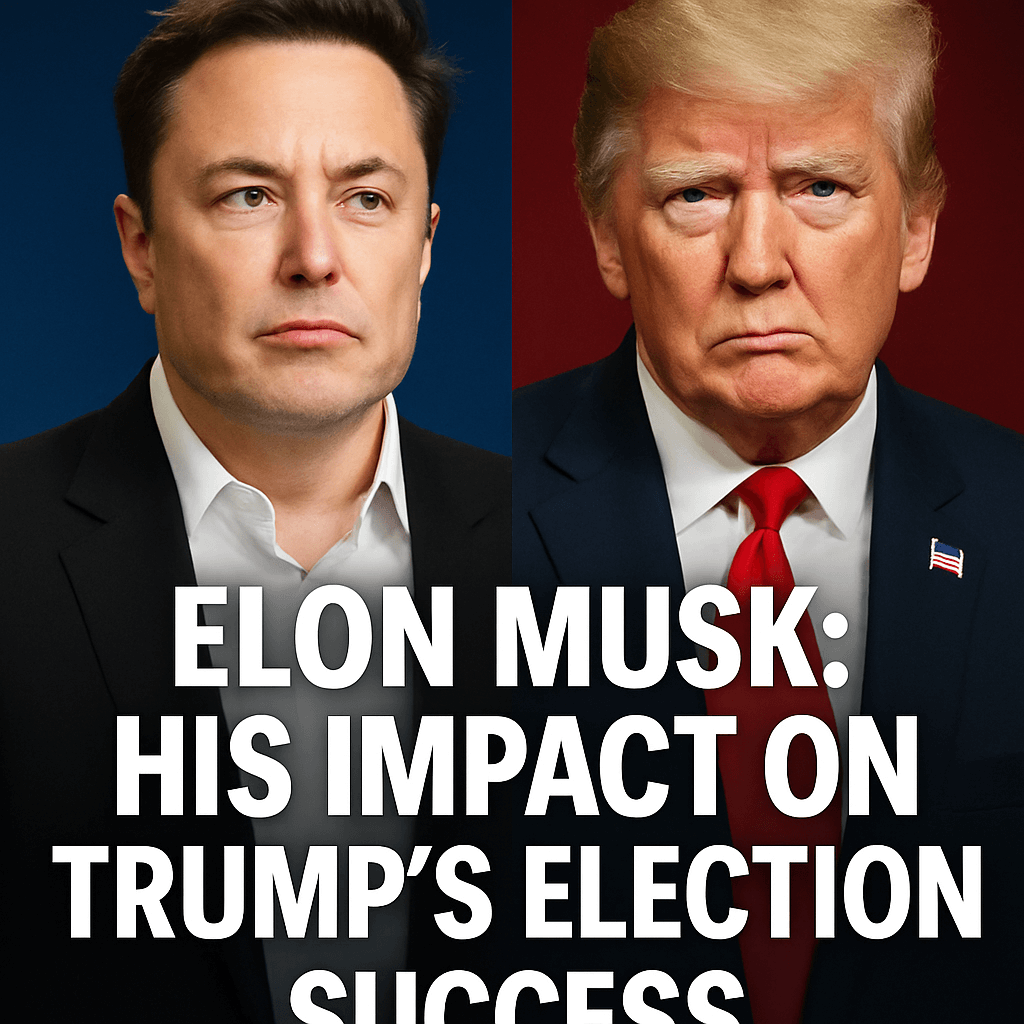Elon Musk: His Impact on Trump’s Election Success

In a high-profile public disagreement, Elon Musk and former President Donald Trump are finding themselves at odds over a spending bill that could have significant implications for the electric vehicle (EV) industry, particularly Tesla. Musk, the CEO of Tesla and a prominent figure in the tech world, has voiced strong opposition to Trump’s proposed spending package, which he believes could undermine the progress of electric vehicle adoption in the United States.
The Controversial Spending Bill
The spending bill in question, labeled by Trump as “big and beautiful,” has met considerable backlash from various quarters, including Musk. One of the primary points of contention is the bill’s provision to terminate the $7,500 tax credit for electric vehicles, scheduled to phase out by the end of 2025. This subsidy has been a crucial financial incentive for consumers to purchase electric vehicles, benefiting Tesla significantly since its inception.
During a recent dialogue on Musk’s social networking platform X (formerly Twitter), Musk stated, “Without me, Trump would have lost the election, Dems would control the House and the Republicans would be 51-49 in the Senate.” This assertion follows shortly after Speaker of the House Mike Johnson disclosed that he spoke with Trump about Musk’s criticisms of the spending bill.
The Disputed Impact
“I would have won Pennsylvania regardless of Elon,” Trump remarked during a press conference. “I’m very disappointed with Elon. He knew this bill better than anyone and he only developed a problem when he found out I would cut the EV mandate.”
Trump’s statement highlights the escalating tension between the two influential figures. The President’s perspective is that Musk’s opposition is a recent development, prompted by changes directly affecting his business. Musk, on the other hand, alleges that the spending bill could result in a significant setback for the EV market, jeopardizing the strides made during his brief tenure as a special government employee at the Department of Government Efficiency (DOGE).
During his 130-day tenure at DOGE, Musk aimed to streamline government processes and reduce unnecessary expenditures, advocating for budgetary discipline. However, his resignation last week has raised questions about his influence on current policy decisions.
Reactions to the Spending Bill
- Musk’s Critique: Musk described the bill as a “massive, outrageous, pork-filled” initiative, condemning it as a “disgusting abomination” that he claims would add trillions to the federal deficit.
- Legislative Position: The bill not only cuts EV subsidies but also allocates $350 billion towards national security and strict immigration policies, while tightening eligibility for Medicaid and SNAP programs.
- Economic Projections: The White House argues that the legislation could boost GDP growth by 2.6% to 3.2% in the long term. Conversely, the Congressional Budget Office projects a $2.4 trillion increase in the deficit over the next decade, potentially leading to a rise of 10.9 million uninsured Americans.
Expert Opinions and Implications for the EV Market
The ongoing conflict highlights the complex relationship between tech moguls and political leaders and the potential repercussions for the EV landscape. Some economic experts note that eliminating the EV tax credit could slow the transition to electric vehicles at a crucial time when environmental policies are increasingly prioritizing sustainability and carbon reduction.
Failure to secure continuous support for electric vehicles could hinder Tesla’s competitive advantage, paving the way for traditional automakers who may capitalize on budget-conscious consumers drawn to less expensive, gasoline-powered vehicles as incentives dwindle.
The Bigger Picture: Political and Economic Context
This clash between Musk and Trump ties into broader political narratives surrounding the role of technological innovation in economic policy. The disagreements reflect the diverging ideologies on how governmental actions should foster or inhibit technological advancement. As various stakeholders weigh in, the debate over the spending bill will likely influence future legislative efforts addressing both economic growth and environmental commitments.
As the discussions unfold, Musk’s blunt calls to action resonate with his followers, who share concerns over increased government spending. In a recent post, he urged, “Call your Senator. Call your Congressman. Bankrupting America is NOT ok!” Such contributions underscore the intersecting lines between social media, politics, and business.
This situation remains fluid as both Musk and Trump navigate their respective narratives, with potential long-term implications for the U.S. economy and the electric vehicle market.
Conclusion
The power struggle between two of the most influential figures in modern society—Elon Musk and Donald Trump—highlights the intricacies of political maneuvering and economic policymaking. As the impact of the proposed spending bill unfolds, stakeholders from all sectors wait to see how it will affect the evolving landscape of technology, the automotive industry, and global economic policies.
Source: fortune